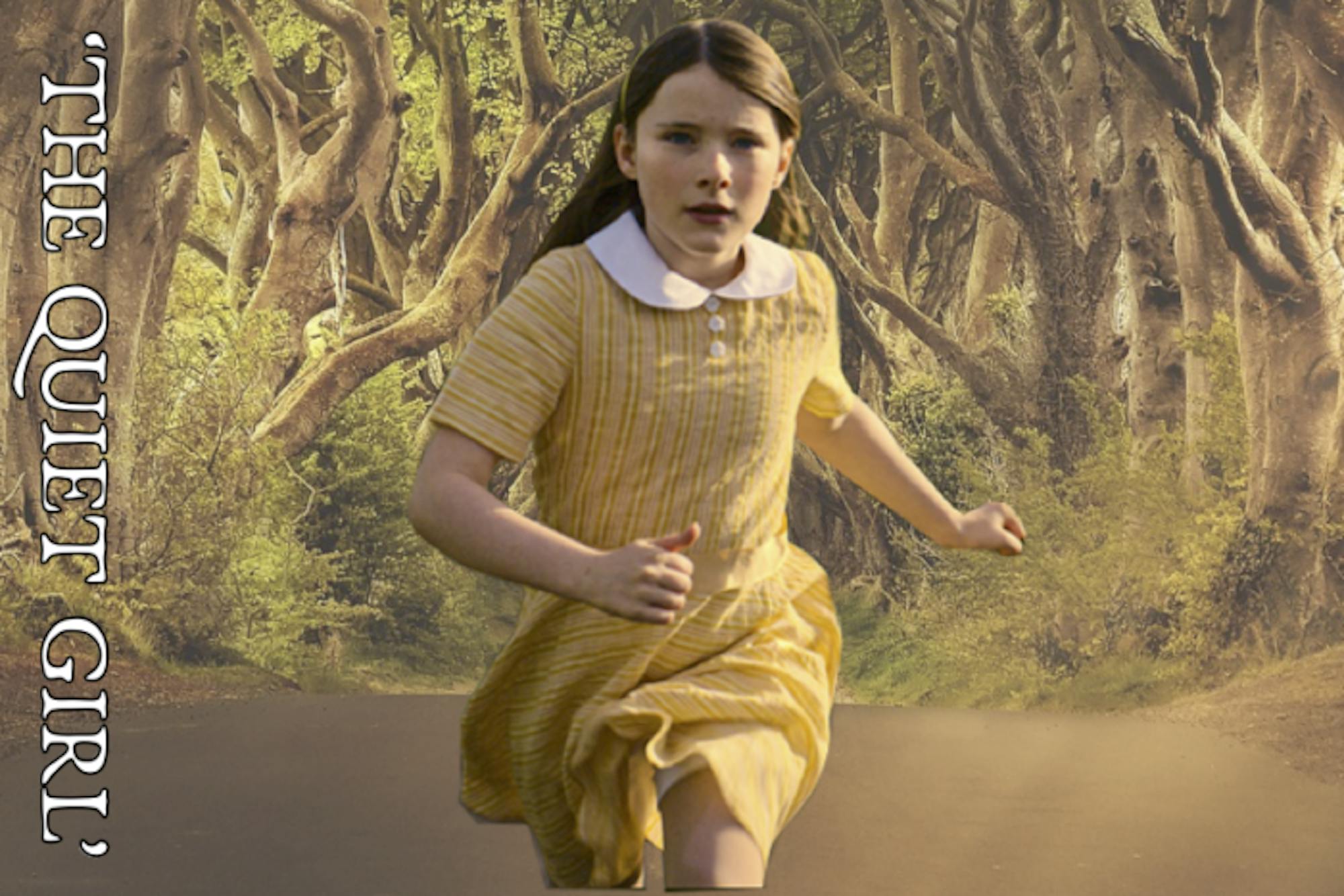
I don’t know if I’ve told you, but last spring, I studied abroad in Dublin, Ireland. While a running joke in The Observer office is that I am quick to talk about it, to be honest, I don’t think I bring it up that much. Not any more than it deserves, anyways. In fact, it is often other people who mention it to me.
I was in Dublin when Colm Bairead’s “The Quiet Girl” first played at the Dublin Film Festival. Unfortunately, I didn’t see it — I tried, but it sold out. Later, the film was released in Irish theaters four days after I left for the States.
“The Quiet Girl” is a significant achievement in Irish cinema, not least because it just became the first Irish film nominated for Best International Feature at the Oscars. It is also overwhelmingly spoken in Irish — not the first Irish film made in the island’s native tongue, but certainly the first to gain so much recognition.
While the teaching of Irish is compulsory in public schools in Ireland — and countless efforts are being made today to encourage its instruction and adoption — the 2016 Irish census revealedthat less than 40% of the population is able to speak the language. Less than 2% are daily speakers.
Most popular Irish films in America — including the brilliant “The Banshees of Inisherin” — cast Irish people as gregarious folk who love nothing more than a conversation. Or so it would seem. Crucially, the conflict in “Banshees” arises precisely because Colm (Brendan Gleeson) won’t talk to Padraic (Colin Farrell). And in “The Quiet Girl,” writer and director Bairead is interested in a similar contradiction. For a group of people so known to talk, how do you explain a culture of silence?
“The Quiet Girl” (based on the novella “Foster” by Claire Keegan) tells the story of Cait, played with reserved grace by newcomer Catherine Clinch. She’s the fourth of five siblings, soon to be six, in an impoverished family living in rural Ireland in 1981. Her parents neglect her, so much so that they ship her off to a distant relative’s house for the summer. We’re told this is because they can’t afford to feed her, but we suspect it’s because they can’t be bothered to.
She is welcomed to her temporary home by Eibhlin (Carrie Crowley) and Sean (Andrew Bennett), a middle-aged couple who live alone on a large farm in Co. Waterford. Eibhlin treats Cait with kindness, gently bathing her and brushing her hair. We understand it is the first time she’s ever been taken care of. Sean, however, keeps a cold distance, and we deduce it is not without reason. When that reason is revealed, it is not altogether surprising. But “The Quiet Girl” doesn’t need a big twist to pack a powerful punch.
Shot with shallow focus in Academy ratio by cinematographer Katie McCullough, “The Quiet Girl” takes the appearance of an old photograph. The camera often assumes the perspective of Cait herself, framing the adults in her life from behind and focusing on small details and textures, like how sunlight will stream through a sea of trees as you look out the car window. The score by Stephen Rennicks, meanwhile, sneaks up on you — just like the film’s ending, a cathartic final sequence that Bairead drops the breadcrumbs for so subtly, they blend into the gravel of the country road itself.
“The Quiet Girl” is a great film made of simple themes: love, family, loss. But most of all, it is a film about language — about when we should speak and when we need not to. It takes the shape of the girl who gave it its name. At one point, a character observes of Cait, “A quiet girl, this one.” Sean responds, “She says as much as she needs to say.”
Maybe it’s the Irish in me that compels me to converse — that makes my voice carry farther than I realize, that makes me interrupt silence with any passing thought. Maybe that’s why I like to write. But I am learning, if slowly, the art of being quiet. “The Quiet Girl” is a testament to that craft — a delicate Irish elegy. I hope I haven’t rambled too much about it. I don’t think I have.
Not any more than it deserves, anyways.
Title: “The Quiet Girl”
Director: Colm Bairead
Starring: Catherine Clinch, Carrie Crowley, Andrew Bennett
If you liked: “The Banshees of Inisherin,” “Petite Maman”
Shamrocks: 4.5 out of 5
Read More
Trending









